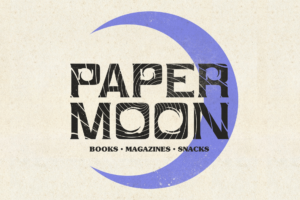By Zosia Kessel
This summer, I explored as much of the poetry world as I could of New York’s Capital Region to learn about the literary community around me. As a student of literature who grew up in this area, I was curious, so I came home for the summer and served an internship with the Hudson Valley Writers Guild. From open mics to curated readings and poetry circles, I experienced a wide range of what community poetry involvement can look like. In my search for events to attend, I was shocked by the large number of regularly recurring poetry events. How had I missed them all growing up?
Almost all the hosts of events I attended said that their event arose from the simple passion for reading, hearing, writing, and sharing poetry. I was struck by how loyal people were to “their” open mic, reading or circle and to the community created among attendees. I got the impression that the greater poetry community had sorted itself into little pods of community, which people crave not only for the literary outlet, but in a social sense as well. The events were each warm, welcoming and non-exclusive. While many of the members have been going to the same events for years, I—a first timer—was welcomed with open arms in all of them.
Once I began this exploration, the question I kept pondering was how people of vastly different backgrounds, levels of writing experience, and livelihoods had managed to create cohesive, smoothly proceeding events in which everything seemed to make sense as a whole. I believe that a part of the answer comes from the differences themselves. By hearing a wide range of choices each poet makes, the intentionality of each writing and performance decision becomes clear. Participants’ emotional understanding of all the poems they hear is deepened by the contrasts between, and resonances among, the various works’ feelings, content, sounds, and genres.
The first event I attended was Cafe Euphoria’s open mic/slam in Troy, usually hosted by El Evelyn. The venue is a vibrant cafe and restaurant that is transgender and gender non-conforming worker-owned and operated. There were around 20 people in the audience at any given time, with people coming in and out throughout the performances. I had a lively conversation with that night’s stand-in host and a member of Slam Euphoria’s team, Sarrah, which concluded in a surprise tarot card reading. Sarrah explained that the event was created in response to the lack of in-person slam poetry as a result of COVID, and that these open mics attempted to bring back the slam spirit to the local community. The warm company, vibrant performances, and good food made for an exciting and engaging night at Cafe Euphoria. Outside of their own open mics, watch for Slam Euphoria’s team in competition.
As a student of poetry myself, I’ve learned how collective readings can deepen individual poets’ understanding of their own work. This was especially apparent in environments where the practice of thoughtful response was present. I found this when I attended the Poetry Circle at the Schenectady Public Library hosted by Judith Prest and Rhonda Rosenheck (Hudson Valley Writers Guild’s internship coordinator) on the second Monday of each month. This intimate group shares while seated in a circle and takes time for appreciative comments after each poem. It welcomes new people to join its own sessions and encourages them to participate in the broader poetry community. The evening I attended, a handful of people read their poems out loud for the first time ever. A few participants opted to listen and participate in the feedback conversations. We heard a wide diversity of form and content, including spoken word, free-form, humorous, and grieving poetry. I shared two poems-in-progress, which was initially nerve-wracking but ultimately, incredibly rewarding. The Second Tuesday remote open mic hosted by Charlie Rossiter had a very similar vibe. Sharing unfinished work out loud and hearing other poets’ unfinished work brought each participant new insights and understanding. This kind of collective response/revision process is incredibly special in poetry.
In spaces without an open mic, like Salon Salvage, I assumed that more audience members were simply listeners, and not necessarily poets.. Hosted at an eclectic shop called We are the Wood in Troy, the intimate poetry reading is curated by Hajar Hussaini, Matthew Klane, and Amie Zimmerman. Salon Salvage has been running monthly for two years, bringing in local and national poets. It is community-oriented and run with no institutional affiliations. There are no specified genres among the readers, though their work did tend to focus on identity and the convergence of the personal with the political. Turkish-American poet, Sara Deniz Akant, read a handful of poems dealing with becoming a mother during a time of war and violence. Nathan Erwin read poems grappling with masculinity while living in rural Appalachia. To me, this space felt most in touch with how poetry is a necessary part of political struggles. I felt the most drawn and intrigued to the content and people here. After attending one Salon Savage, I immediately planned to attend the next, and I brought along loved ones. Both times, I left feeling energized and inspired.
I was struck by how different it felt to be at an event of readings by invited, published poets and to be a participant at an open mic or poetry circle. In the open mics and circles, many people were very new to the poetry scene and would offer unfinished poems, looking for feedback and response. In contrast, the featured poets read complete, published works in a setlist curated for the audience’s enjoyment. The responsive settings felt almost like peer workshops. I participated with the mindset that each poem was alive, malleable and in transition. The process of revision is thrilling in collaborative spaces. In the more formal readings, I found satisfaction in understanding that everything being read aloud was exactly as the poet wanted it to be heard. I stepped back a bit from a place of critique, and allowed myself permission simply to enjoy the performance.
The diversity and quantity of events demonstrates clearly that poetry is alive and thriving in the Capital Region. The readings I discussed, and many more recurring and special poetry events, are listed on the Hudson Valley Writers Guild events calendar. I encourage you to check it out and plan to attend some events—all either free or extremely affordable—to experience wonderful poetry firsthand.
Zosia Kessel is a senior at Mount Holyoke College majoring in English and minoring in Critical Social Thought. From New York’s Capital Region, in 2024, she served a summer internship with the Hudson Valley Writers Guild.





